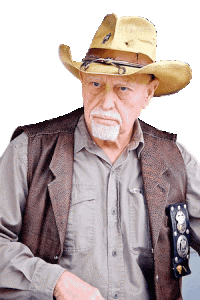Howdy, Stranger!
It looks like you're new here. If you want to get involved, click one of these buttons!
Quick Links


Check out the GGP Sponsors!








Categories


Check out the GGP Sponsors!








In this Discussion
That's a wrap! Thanks for a great season. See you all next year!
We should be shooting 2nd Saturday and 4th Sunday again next year.
Final schedule to be finalized in February.
We should be shooting 2nd Saturday and 4th Sunday again next year.
Final schedule to be finalized in February.
Climategate
 dd
Gnome, gnome on the range!
dd
Gnome, gnome on the range!
If you ever had any doubts about "Global Warming" you probably avoided drinking the Kool Aid served by Al Gore and his minions. Now it seems that what many of us had suspected is true - it was a political sham. It is being called "Climategate" and some of the evidence of chicanery is shocking. They now say:<br />
<br />
<br />
Read about it here - it may not be on the mainstream media for some time.
<br />
Conspiracy, collusion in exaggerating warming data, possibly illegal destruction of embarrassing information, organised resistance to disclosure, manipulation of data, private admissions of flaws in their public claims and much more.
<br /><br />
Read about it here - it may not be on the mainstream media for some time.









Comments
<br />
NOVEMBER 26, 2009, 8:02 P.M. ET<br />
<br />
How to Forge a Consensus<br />
<br />
The impression left by the Climategate emails is that the global warming game has been rigged from the start.<br />
<br />
The climatologists at the center of last week's leaked-email and document scandal have taken the line that it is all much ado about nothing. Yes, the wording of the some of their messages was unfortunate, but they insist this in no way undermines the underlying science, which is as certain as ever.<br />
<br />
"What they've done is search through stolen personal emailsconfidential between colleagues who often speak in a language they understand and is often foreign to the outside world," Penn State's Michael Mann told Reuters Wednesday. Mr. Mann added that this has made "something innocent into something nefarious."<br />
<br />
Phil Jones, Director of the University of East Anglia's Climate Research Unit, from which the emails were lifted, is singing from the same climate hymnal. "My colleagues and I accept that some of the published emails do not read well. I regret any upset or confusion caused as a result. Some were clearly written in the heat of the moment, others use colloquialisms frequently used between close colleagues," he said this week.<br />
<br />
We don't doubt that Mr. Jones would have phrased his emails differently if he expected them to end up in the newspaper. His May 2008 email to Mr. Mann regarding the U.N.'s Fourth Assessment Report: "Mike, Can you delete any emails you may have had with Keith re AR4?" does not "read well," it's true. (Mr. Mann has said he didn't delete any such emails.)<br />
<br />
But the furor over these documents is not about tone, colloquialisms or even whether climatologists are nice people in private. The real issue is what the messages say about the way the much-ballyhooed scientific consensus on global warming was arrived at in the first place, and how even now a single view is being enforced. In short, the impression left by the correspondence among Messrs. Mann and Jones and others is that the climate-tracking game has been rigged from the start.<br />
<br />
According to this privileged group, only those whose work has been published in select scientific journals, after having gone through the "peer-review" process, can be relied on to critique the science. And sure enough, any challenges that critics have lobbed at climatologists from outside this clique are routinely dismissed and disparaged.<br />
<br />
This past September, Mr. Mann told a New York Times reporter in one of the leaked emails that: "Those such as [Stephen] McIntyre who operate almost entirely outside of this system are not to be trusted." Mr. McIntyre is a retired Canadian businessman who fact-checks the findings of climate scientists and often publishes the mistakes he findsincluding some in Mr. Mann's workon his Web site, Climateaudit.org. He holds the rare distinction of having forced Mr. Mann to publish a correction to one of his more-famous papers.<br />
<br />
As anonymous reviewers of choice for certain journals, Mr. Mann & Co. had considerable power to enforce the consensus, but it was not absolute, as they discovered in 2003. Mr. Mann noted to several colleagues in an email from March 2003, when the journal "Climate Research" published a paper not to Mr. Mann's liking, that "This was the danger of always criticising the skeptics for not publishing in the 'peer-reviewed literature'. Obviously, they found a solution to thattake over a journal!"<br />
<br />
The scare quotes around "peer-reviewed literature," by the way, are Mr. Mann's. He went on in the email to suggest that the journal itself be blackballed: "Perhaps we should encourage our colleagues in the climate research community to no longer submit to, or cite papers in, this journal. We would also need to consider what we tell or request of our more reasonable colleagues who currently sit on the editorial board." In other words, keep dissent out of the respected journals. When that fails, re-define what constitutes a respected journal to exclude any that publish inconvenient views. It's easy to manufacture a scientific consensus when you get to decide what counts as science.<br />
<br />
The response to this among the defenders of Mr. Mann and his circle has been that even if they did disparage doubters and exclude contrary points of view, theirs is still the best climate science we've got. The proof for this is circular. It's the best, we're told, because it's the most-published and most-citedin that same peer-reviewed literature.<br />
<br />
Even so, by rigging the rules, they've made it impossible to know how good it really is. And then, one is left to wonder why they felt the need to rig the game in the first place, if their science is as robust as they claim. If there's an innocent explanation for that, we'd love to hear it.<br />
<br />
Copyright 2009 Dow Jones & Company, Inc. All Rights Reserved
<br />
Just askin'...<br />
<br />
SFJ
<br />
SFJ